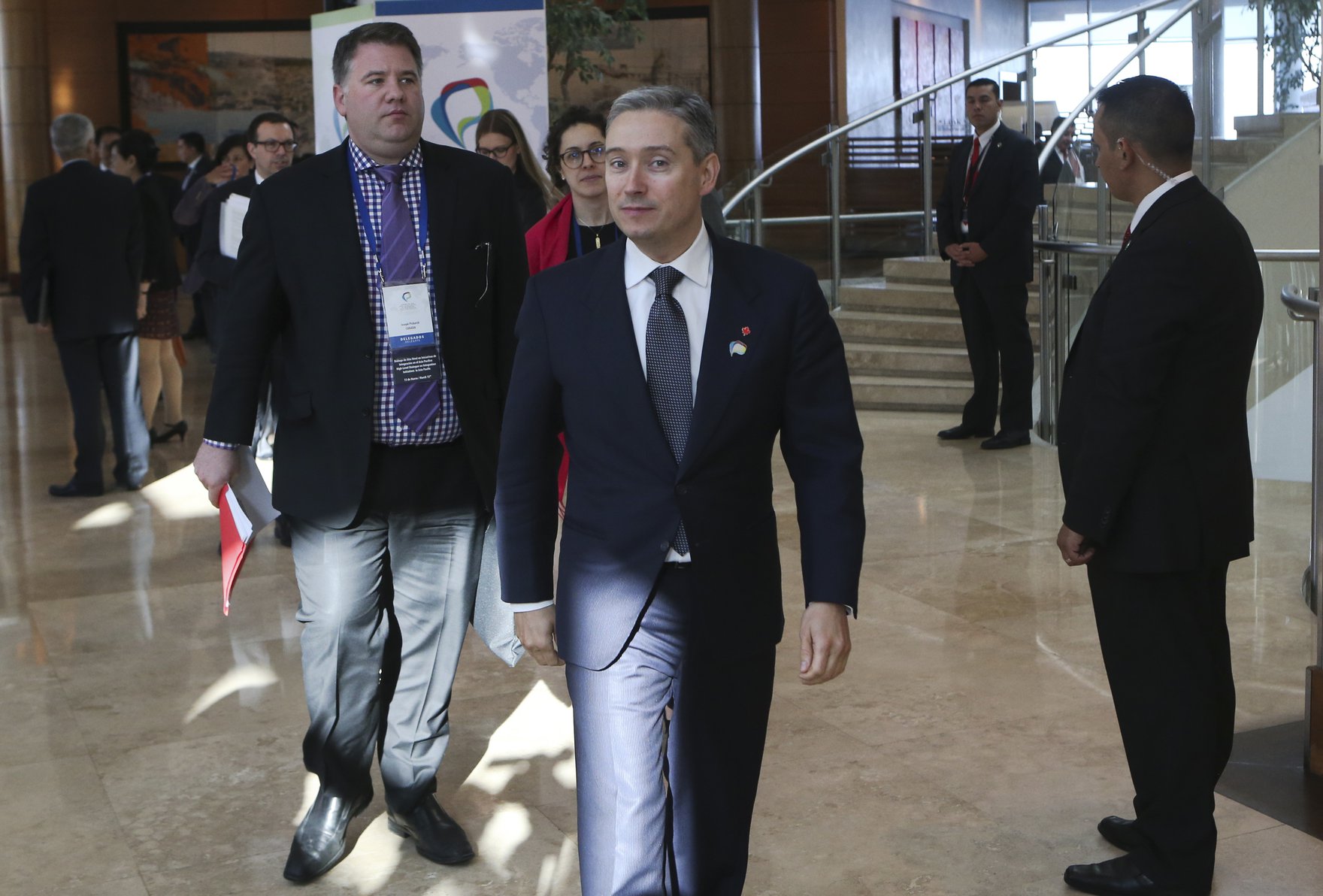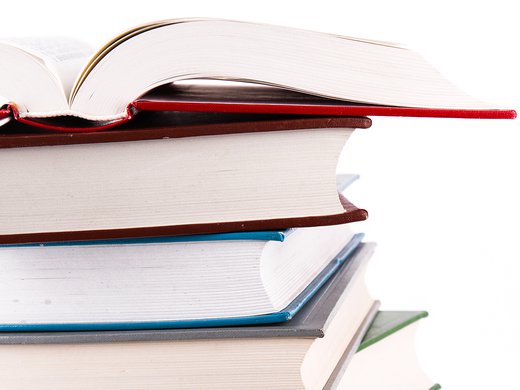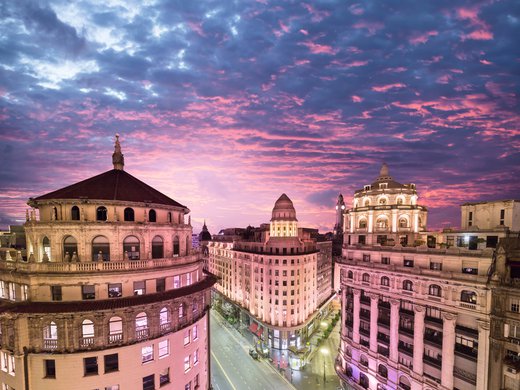There is an inverse relationship between the number of kilometres François-Philippe Champagne travels and the amount of attention he receives.
Canada’s trade minister was in Morocco over the Canadian Thanksgiving weekend for a World Trade Organization (WTO) meeting, and in Mexico less than a week later for Prime Minister Justin Trudeau’s first official visit to the country.
Not every week is like that, but many are. Champagne believes the life of a trade minister should be spent on the road. “Opening trade agreements, for me, is key, but it’s an enabler,” he told Maclean’s in July. “The next thing is getting there to make sure you sell something.”
All those travel points will buy you some nice merchandise from Aeroplan. But they won’t get you a lot of press when the only trade story the country cares about is the potential ransacking of the North American Free Trade Agreement (NAFTA) by US President Donald Trump.
Trudeau deputized Foreign Affairs Minister Chrystia Freeland to protect NAFTA, in part because she probably was the most qualified for the assignment, but also because he wanted his trade minister to be doing more than shuttling back and forth between Ottawa and Washington.
So Champagne is missing out on the big event, but at least he gets to do his job. And in the era of Trump, that job — salvaging the Trans-Pacific Partnership and attempting to secure new trade agreements with China, India and others — is more important than many Canadians seem to realize. While Freeland plays defence, Champagne is on offence, attempting to offset the United States’ protectionist shift with new commercial opportunities elsewhere. During his tenure to this point, Canada has initiated exploratory trade talks with the members of the Association of Southeast Asian Nations and restarted negotiations with South American trade bloc Mercosur.
Another part of Champagne’s job is representing Canada at the star-crossed WTO.
Once the focal point of postwar global trade, the WTO is now struggling to find its place in the world. Even before Trump came along, countries were turning away from the Geneva-based organization. After 14 years of talks, the Doha Round of trade talks failed in 2015, and governments opted for bilateral and regional trade agreements.
There were reasons to wonder about Trudeau’s commitment to the multilateral trading system.
Like previous governments, Trudeau’s officials said the right things: the WTO mattered most because a smaller economy such as Canada always will do better in a multilateral system than it will trying to negotiate agreements with bigger, stronger counterparties. But absent from Trudeau’s mandate letters to Champagne and to his previous trade minister, Freeland, was any mention of the WTO. Yet the prime minister ordered Champagne explicitly to pursue trade with China and India. It created the impression that Canada, like so many other countries, had given up trying to get anything important done in Geneva.
Neglect has left the WTO vulnerable. Trump’s trade representative, Robert Lighthizer, isn’t a fan. The United States is blocking the appointment of new judges to the WTO’s court of appeals because it dislikes the way the dispute-settlement process works. American intransigence risks crippling a process that is already strained. The appeals court is meant to have seven judges, and by the end of the year could have only four.
Robert Wolfe, a trade expert at Queen’s University, has called on Canada to play a bigger role at the WTO. One of the things Wolfe says the Trudeau government could do is bridge the gap between the Trump administration and others.
Champagne appears ready to play that role. In Morocco, he pushed the idea of creating a working group to look at “modernizing” the institution. But he also told his American counterparts that having issues with a process was a poor reason to take that process hostage. “No one should use that as a reason to hold up appointments to appellate bodies,” Champagne told me in a telephone interview from Casablanca on October 10.
I’m among those who have wondered about Canada’s commitment to the WTO. One of the reasons Champagne phoned was to make the case that skeptics like me should stop wondering. “Imagine a world without the WTO,” he said. “Not being at the table is not an option.”
He hosted a breakfast meeting in Morocco to build support for “progressive trade,” an abstract Canadian notion that would use trade agreements to address issues such as women’s empowerment and labour rights. Champagne said he challenged his counterparts to be more ambitious. He wants tangible results at the WTO’s ministerial meeting in Buenos Aires in December, perhaps a resolution on removing barriers to e-commerce. “I’m cautiously optimistic,” he said.
Champagne strikes me as a person naturally inclined to optimism, so it’s hard to know if there is specific reason to anticipate something significant when ministers from the WTO’s 164 members gather in Argentina. Canada wants to do some small things, rather than get hung up on perennially difficult issues such as agriculture subsidies. India wants the opposite. Its trade minister said after the Morocco meeting that it was uninterested in adding new issues to the existing agenda, including e-commerce.
That’s typical of India, one of the WTO’s more stubborn members. Less typical is the sight of a Canadian minister so outwardly keen to make a difference in Geneva. It’s too soon to know whether that enthusiasm will make a difference, but it’s something the world hasn’t seen for a while.



